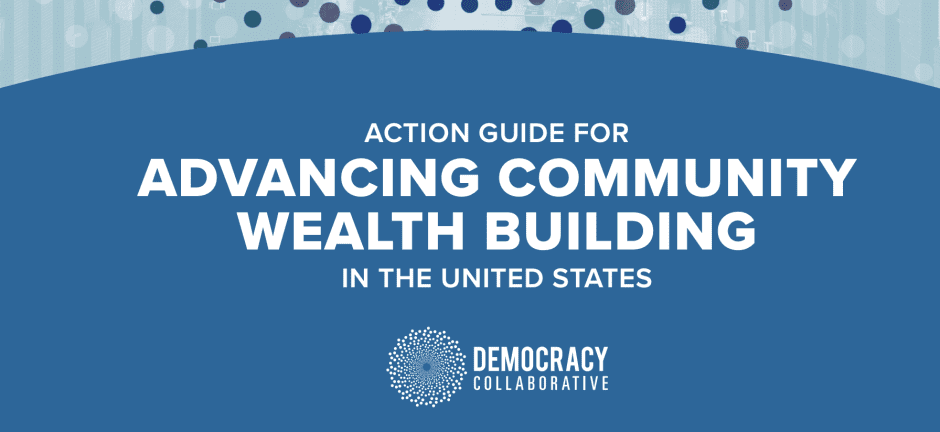The Democracy Collaborative, a US think-tank and research centre, has released an action guide for advancing community wealth building.
Designed as a practical framework for action, the guide aims to show readers how they can start community wealth building where they are, using resources and policy levers already available to them.
It is aimed at any group looking to pursue and advance a community wealth building approach in its locality, including economic development practitioners, community activists and organisations, anchor institutions, and local government agencies and leaders.
Written by Sarah McKinley, a director, and Neil McInroy, a fellow, at the Democracy Collaborative, the guide is split into three sections.
Section 1 offers a brief introduction to the concept of community wealth building as well as an overview of the practicalities of delivering it in place.

Section 2 details the components of community wealth building, arranged by the “five pillars” of community wealth-building: Inclusive and democratic enterprise, Locally rooted finance, Fair work, Just use of land and property and Progressive procurement.
Section 3 offers advice on how to create effective governance and structure around your approach to community wealth building.
Exploring some of the issues within current economic development practice, the guide also presents community wealth building solutions, highlighting examples and case studies. Readers are also pointed towards questions to consider, steps for getting started, critical indicators to track, and additional resources.
The guide features a short history of the co-op movement in the USA and around the world, and emphasises that policy should support the creation of multiple forms of worker and consumer co-ops, social enterprises, municipal enterprises, and more, based on the recognition of the ownership of productive capital. Furthermore, it argues that local governments and place-based “anchor institutions” should lead with procurement practices that relocalise economic activity, build local multipliers, and end financial leakage and extraction.
The term community wealth building was coined by the Democracy Collaborative in 2004 and initially implemented in Cleveland, Ohio, where a mix of locally focused spending by city institutions and the development of employee-owned co-operatives came to be known as ‘the Cleveland Model’.
Along with the Cleveland Foundation, the Democracy Collaborative worked with local institutions and community groups to develop progressive procurement strategies for anchor institutions and to create the Evergreen Cooperatives, a network of green industrial enterprises that supply goods and services to large local anchor institutions like the Cleveland Clinic and Case Western University.
“What community wealth building offers is a framework for reimagining local democracy by putting citizens at the heart of key decision-making processes – as workers, caregivers, consumers, and community members,” said the Democracy Collaborative.
“The principles and new institutional arrangements at the heart of community wealth-building represent foundational steps for building a new economy from the bottom up in which the needs of the community and planet come first. We hope you find this guide helpful for ‘getting started’ as you set out on your own transformational community wealth-building journey.“